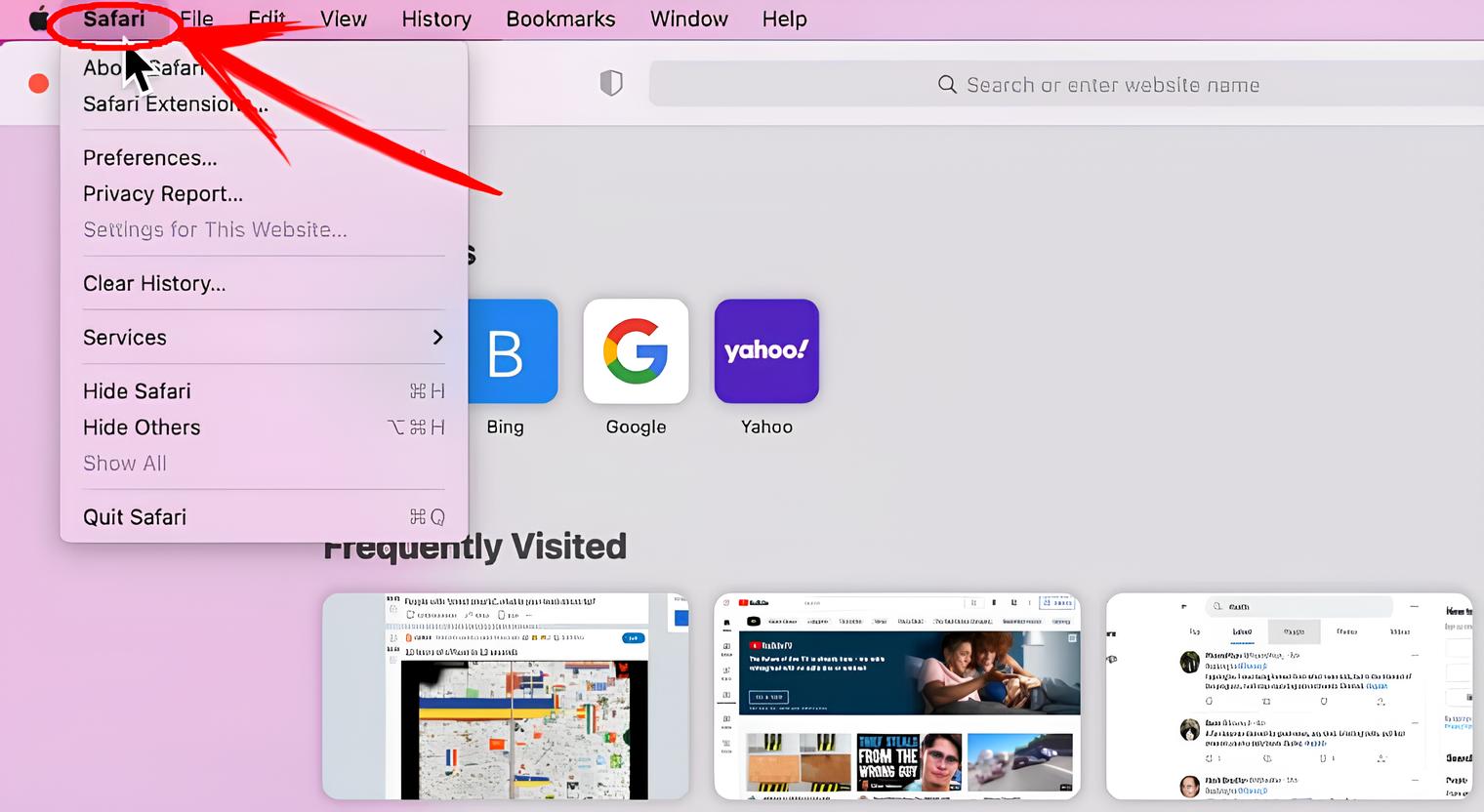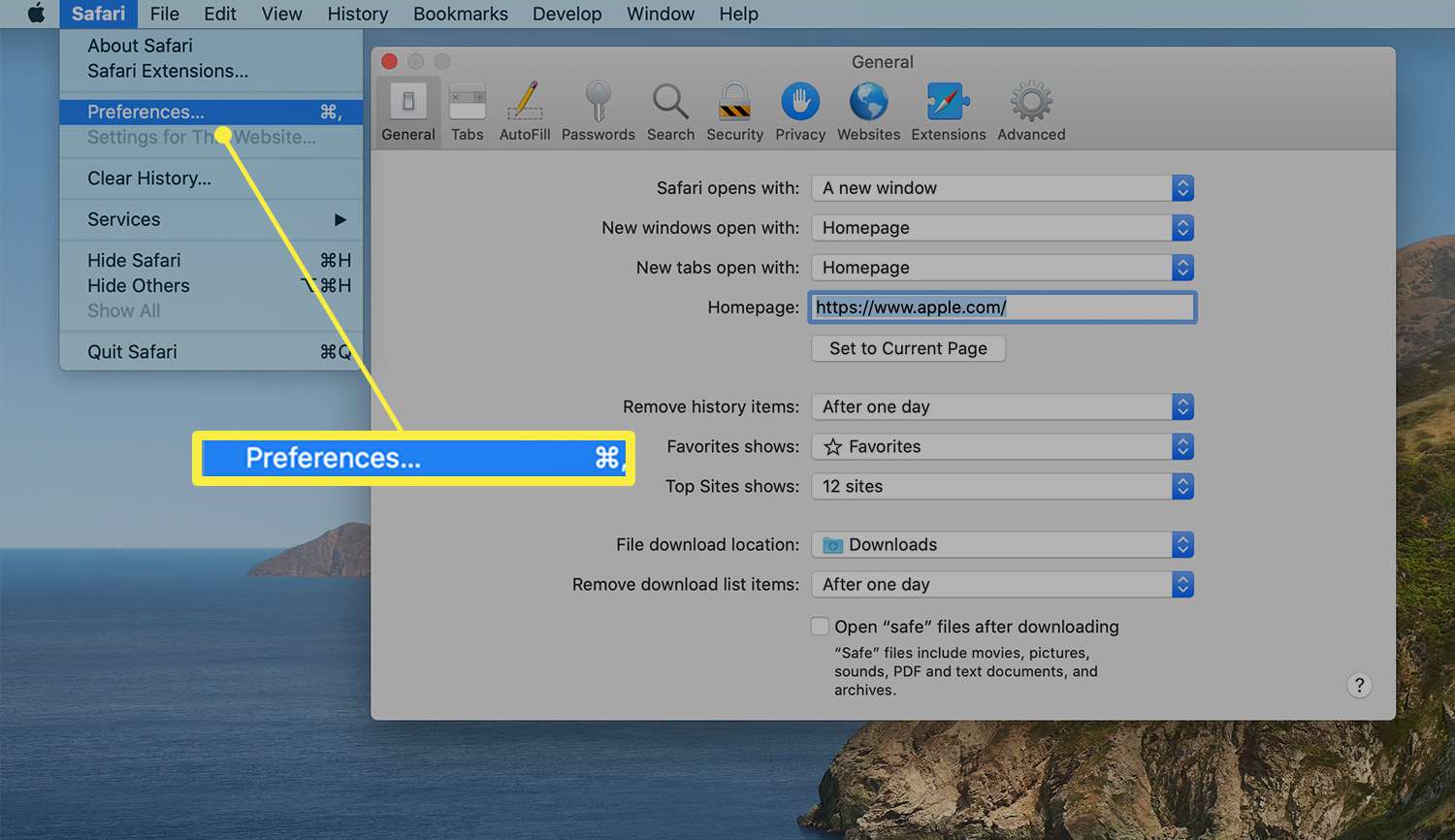Introduction
In today's digital age, web browsing has become an integral part of our daily lives. Whether we're shopping online, reading the news, or connecting with friends on social media, our web activities leave behind a trail of data that is often used for targeted advertising and user tracking. However, this convenience comes with a potential downside: cross-site tracking.
Cross-site tracking refers to the practice of collecting and sharing user data across multiple websites, often without the user's explicit consent. This form of tracking allows companies to create detailed profiles of individuals' online behavior, preferences, and interests. While this can lead to personalized experiences and targeted advertisements, it also raises concerns about privacy and data security.
In the context of Apple's Safari browser, cross-site tracking has been a focal point of attention. As one of the leading web browsers, Safari has taken a proactive stance in safeguarding user privacy and security. By understanding the implications of cross-site tracking and the measures taken by Safari to mitigate its impact, users can make informed decisions about their online activities and protect their personal information.
In this article, we will delve into the intricacies of cross-site tracking in Safari, exploring its implications and the steps users can take to mitigate its effects. By shedding light on this important aspect of web browsing, we aim to empower users with the knowledge and tools to navigate the digital landscape with confidence and security. Let's embark on a journey to unravel the complexities of cross-site tracking and discover how Safari is at the forefront of protecting user privacy.
Understanding Cross-Site Tracking
Cross-site tracking, also known as third-party tracking, is a pervasive practice in the digital realm that involves the collection and sharing of user data across multiple websites. This mechanism allows various entities, such as advertising networks and data brokers, to monitor users' online activities, create comprehensive profiles, and deliver targeted advertisements. The fundamental concept revolves around the ability to track users as they navigate through different websites, enabling the aggregation of their browsing history, preferences, and interactions.
At the core of cross-site tracking is the utilization of cookies, which are small pieces of data stored in users' web browsers. These cookies are employed by third-party entities to track users across various websites, thereby enabling the compilation of extensive behavioral data. By leveraging this information, advertisers can tailor their marketing strategies to align with users' interests and preferences, ultimately enhancing the effectiveness of targeted advertising campaigns.
The implications of cross-site tracking extend beyond personalized advertising, delving into the realms of privacy and data security. With the accumulation of vast amounts of user data, concerns arise regarding the potential misuse or unauthorized access to this information. Furthermore, the lack of transparency and user consent in cross-site tracking practices raises ethical and legal considerations, prompting discussions about the need for enhanced privacy regulations and user empowerment.
In the context of Safari, Apple has been at the forefront of addressing cross-site tracking through innovative measures. Safari's Intelligent Tracking Prevention (ITP) is a pioneering feature designed to mitigate the impact of cross-site tracking by limiting the capabilities of third-party trackers. By intelligently managing cookies and other website data, ITP aims to enhance user privacy while maintaining a seamless browsing experience.
As users become more cognizant of the intricacies of cross-site tracking, the demand for transparency, control, and privacy-centric browsing experiences continues to grow. By comprehending the mechanisms and implications of cross-site tracking, individuals can make informed decisions about their online activities and take proactive steps to safeguard their personal information. Safari's commitment to privacy and security underscores the significance of empowering users to navigate the digital landscape with confidence and control.
Impact of Cross-Site Tracking in Safari
Cross-site tracking in Safari can have far-reaching implications for users, influencing their online experiences, privacy, and data security. By allowing third-party entities to monitor and aggregate user data across multiple websites, cross-site tracking raises significant concerns that extend beyond targeted advertising.
One of the primary impacts of cross-site tracking is the erosion of user privacy. As users navigate the web, their activities and interactions are meticulously tracked, leading to the creation of detailed profiles that encompass their browsing history, preferences, and behaviors. This extensive data collection can infringe upon individuals' privacy rights, as it enables entities to gain insights into users' personal interests and online habits without their explicit consent.
Furthermore, cross-site tracking poses potential security risks, as the aggregation of user data across disparate websites increases the likelihood of unauthorized access or misuse of this information. The accumulation of sensitive data within the digital ecosystem heightens concerns about data breaches, identity theft, and other forms of cyber threats. Consequently, users may feel vulnerable to potential exploitation and unauthorized surveillance, underscoring the critical need for robust privacy safeguards.
Moreover, the prevalence of cross-site tracking can lead to a less transparent and user-centric web browsing experience. With third-party entities leveraging tracking mechanisms to monitor users' activities without their explicit knowledge, the lack of transparency undermines users' ability to make informed decisions about their online interactions. This opacity in data collection and sharing practices diminishes users' control over their personal information, highlighting the importance of empowering individuals with greater transparency and consent mechanisms.
In response to these implications, Safari's Intelligent Tracking Prevention (ITP) has emerged as a pivotal tool in mitigating the impact of cross-site tracking. By implementing measures to intelligently manage cookies and restrict the capabilities of third-party trackers, Safari aims to bolster user privacy and security while fostering a more transparent and user-centric browsing environment.
As users become increasingly aware of the implications of cross-site tracking, the demand for privacy-centric browsing experiences continues to grow. Safari's proactive approach to addressing cross-site tracking underscores the significance of prioritizing user privacy and empowering individuals to navigate the digital landscape with confidence and control.
Through a comprehensive understanding of the impact of cross-site tracking in Safari, users can make informed decisions about their online activities and leverage the tools and features available to safeguard their privacy and security. By championing user empowerment and privacy-centric initiatives, Safari remains at the forefront of fostering a more secure and transparent web browsing ecosystem.
How to Prevent Cross-Site Tracking in Safari
Safari, renowned for its commitment to user privacy and security, offers robust features and settings to mitigate the impact of cross-site tracking. By leveraging these tools, users can proactively safeguard their online activities and enhance their browsing privacy. Here are several effective methods to prevent cross-site tracking in Safari:
1. Enable Intelligent Tracking Prevention (ITP):
Safari's Intelligent Tracking Prevention (ITP) is a groundbreaking feature designed to limit the capabilities of third-party trackers, thereby reducing cross-site tracking. By intelligently managing cookies and other website data, ITP enhances user privacy while maintaining a seamless browsing experience. Users can ensure that ITP is enabled by accessing Safari's preferences and navigating to the "Privacy" tab.
2. Utilize Content Blockers:
Safari allows users to install and utilize content blockers, which are extensions designed to block specific types of content, including trackers and cookies. By leveraging content blockers, users can effectively mitigate cross-site tracking and enhance their browsing privacy. These blockers can be easily installed and managed through Safari's preferences, empowering users to customize their browsing experience according to their privacy preferences.
3. Manage Website Data:
Safari provides users with the ability to manage website data, including cookies and other tracking mechanisms. By regularly reviewing and clearing website data, users can minimize the accumulation of tracking information and enhance their privacy. This can be accomplished by accessing Safari's preferences, navigating to the "Privacy" tab, and selecting the "Manage Website Data" option.
4. Limit Cross-Site Tracking and Cookies:
Within Safari's preferences, users can configure settings to limit cross-site tracking and block cookies from third-party entities. By adjusting these settings, users can exert greater control over the data collection practices employed by websites, thereby reducing the impact of cross-site tracking. This proactive approach empowers users to tailor their privacy preferences according to their individual needs and concerns.
5. Stay Informed and Engage with Privacy Settings:
Safari regularly updates its features and settings to enhance user privacy and security. Users are encouraged to stay informed about the latest developments and engage with Safari's privacy settings to leverage the most effective tools for preventing cross-site tracking. By remaining proactive and informed, users can optimize their browsing experience while prioritizing their privacy.
By implementing these strategies and leveraging Safari's privacy-centric features, users can effectively prevent cross-site tracking and enhance their browsing privacy. Safari's steadfast commitment to user privacy underscores the importance of empowering individuals to navigate the digital landscape with confidence and control.
Through a comprehensive understanding of these preventive measures, users can proactively safeguard their online activities and foster a more secure and transparent web browsing ecosystem.
Conclusion
In conclusion, the prevalence of cross-site tracking in the digital landscape has underscored the critical need for robust privacy safeguards and user empowerment. As users navigate the web, their online activities and interactions are subject to extensive tracking and data collection practices, raising concerns about privacy, transparency, and data security. However, Safari, with its pioneering Intelligent Tracking Prevention (ITP) and privacy-centric features, has emerged as a trailblazer in mitigating the impact of cross-site tracking and prioritizing user privacy.
By shedding light on the intricacies of cross-site tracking and Safari's proactive measures, users can make informed decisions about their online activities and take proactive steps to safeguard their personal information. Safari's commitment to enhancing user privacy and security reflects a steadfast dedication to empowering individuals to navigate the digital landscape with confidence and control.
As users become increasingly aware of the implications of cross-site tracking, the demand for privacy-centric browsing experiences continues to grow. Safari's proactive approach to addressing cross-site tracking underscores the significance of prioritizing user privacy and fostering a more secure and transparent web browsing ecosystem.
By leveraging Safari's robust features, including Intelligent Tracking Prevention (ITP), content blockers, and privacy settings, users can proactively mitigate the impact of cross-site tracking and enhance their browsing privacy. Through a comprehensive understanding of these preventive measures, individuals can navigate the digital landscape with confidence, knowing that their privacy and security are prioritized.
In essence, Safari's commitment to user privacy and its proactive stance in addressing cross-site tracking exemplify the importance of empowering individuals to take control of their online experiences. By championing transparency, user consent, and privacy-centric initiatives, Safari remains at the forefront of fostering a more secure and user-centric web browsing environment. As users continue to prioritize privacy and data security, Safari's unwavering dedication to user empowerment sets a compelling precedent for the digital ecosystem at large.





















